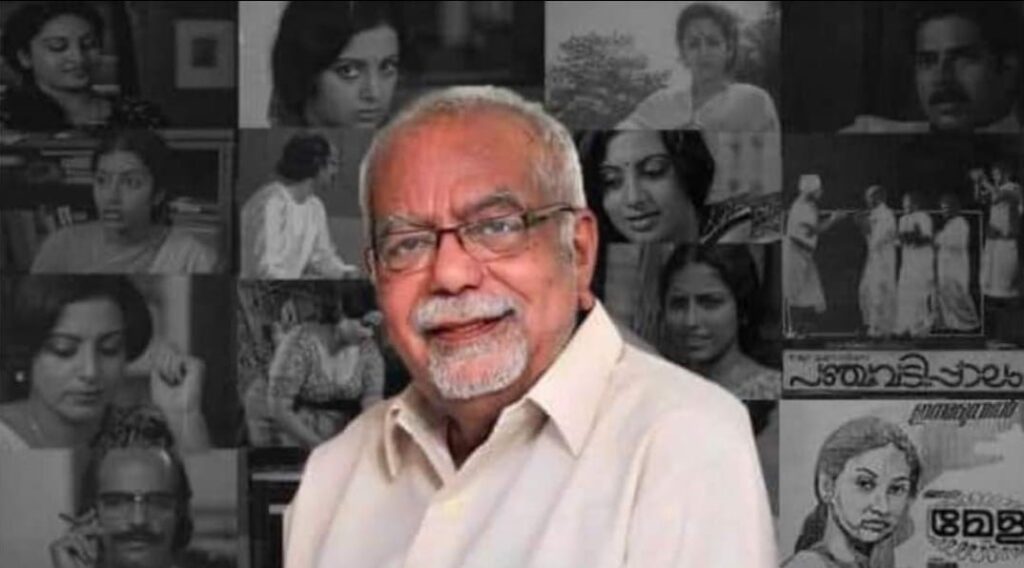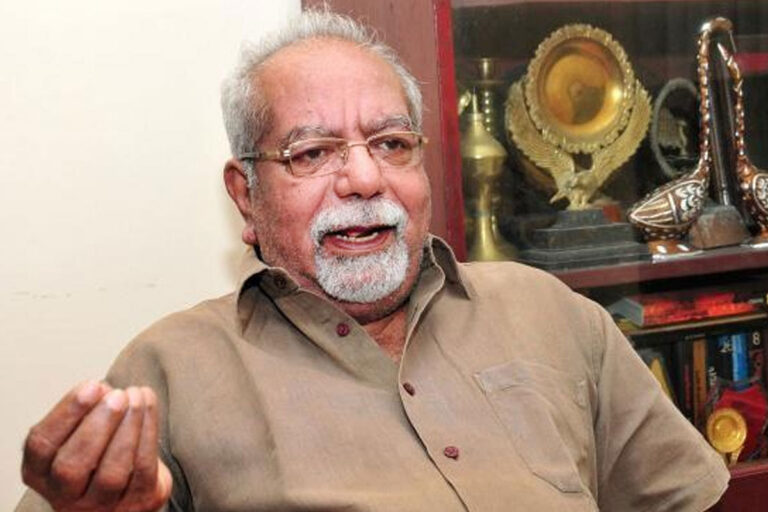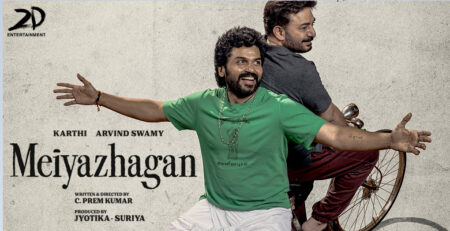K.G. George, the visionary filmmaker of Malayalam cinema’s ‘new wave’ era, leaves a lasting legacy, addressing intricate human relationships, societal imbalances, and the perpetual struggles of women in his thought-provoking films.
Kulakkattil Geevarghese George, better known as K.G. George, was a cinematic maestro who ushered in a ‘new wave’ in Malayalam cinema during the 1970s. His focus rested squarely on the intricate tapestry of human relationships and societal imbalances. He possessed a unique ability to distill the profound enigmas of human existence, typically the domain of parallel cinema, into popular films that not only captivated audiences but also achieved significant box office success. With his passing on September 24, 2023, the Malayalam film industry finds itself bereft, yet filled with undying memories of his timeless classics. These films continue to transcend the constraints of time, provoking thoughtful discourse whenever they are revisited.
Psychosocial conflicts on screen
His films objectively extrapolated the characters even when they were vocal on screen about the sentimental journeys that they undertake and the catastrophes they inevitably encounter. Never stooping into a melodramatic discourse, K.G. George’s films powerfully scripted and screened the psychological journeys of humans whom we can locate in our immediate environment.
He destroyed the fake morality codes and the hypocritic norms without ever making his cameras hunt for voyeuristic pleasure. The existential crises of humans and the angst that make them question themselves were portrayed in his films. This angst was actually a central theme in several of his films. His first film, a psychological drama, Swapnadanam (1976) with extreme artistic dexterity elucidates how by swinging between dreams and reality, between consciousness and unconsciousness, an individual attempts to derive happiness or pleasure from his own puzzling existence.

This angst and chronic swinging between the real and the unreal complicate the family life of the protagonist. While the male protagonist’s psychological predicament is poignantly portrayed, George skillfully shows how the system and the institution called family smother women. While Swapnadanam explicitly dealt with the psychological turbulences of the character, similar undertones are traceable in his other films too.
Irakal, Ulkkadal, Mattoral, and Aadaminte Variyellu are the best examples of how K. G. George treated the nuances of the functioning of human minds. Desire, despair, dejection, denial, and violence entangle the minds of his characters, germinating reactions that are perceived as abnormal or aberration from the constructed ideals of the ‘normal’ individual. These psychological aberrations are always shown as results of the individuals being subjected to their own desires, and their futile struggles to negotiate the moral and ethical codes and norms of the society and social institutions. The psychological expedition of characters is an imperative trope in George’s films.
Women, subjectivity, and catastrophe
The central theme of the “woman-question” resonates throughout all of K.G. George’s films. Without indulging in voyeuristic tendencies, he delves into female sexuality, insecurities, desires, and the traumas that women grapple with, irrespective of their caste or class. “Irakal” and “Mela” explore how female characters express their desires, explicitly in the former and subtly in the latter, and how this disrupts the social fabric to which they belong. “Aadaminte Variyellu” is a film that amplifies female subjectivity by portraying the lives of three diverse women, bound only by their shared subjectivity under patriarchal dominance. By illustrating male privileges, George invites the audience to recognize the ways in which patriarchy ensnares women, ultimately driving them to hysteria and, tragically, their demise.
This film demonstrates how callous machismo victimizes women, subjecting them to perpetual psychological and physical anguish. “Ee Kanni Koodi” is another poignant film that illustrates how men and their rules confine a woman, stripping her of her rights to live with dignity and ultimately pushing her to find solace in death. “Lekhayude Maranam Oru Flashback” chronicles the violation of trust and love endured by a female film star, tormenting her to her demise. Similarly, the tragic life of Vanitha in the film “Kathakku Pinnil” is a consequence of an unkind patriarchal system that objectifies women. Thus, George’s female characters, as described by film critic C.S. Venkateswaran, are “inexorably drawn into the vortex of male power and greed, abused, exploited, and ultimately become prey to it, finding themselves in irrevocable predicaments.”

George’s films shed light on the complexities of man-woman relationships and the intricate power structures and patriarchal politics prevalent in Kerala society, which underlie the impending destruction of his characters. He encourages his audience to uncover the imbalances and inequities within these relationships and challenges the notion of hope. His films often conclude with tragic endings, compelling viewers to engage in cathartic retrospection, and prompting them to reevaluate, amend, and revise their perceptions.
Complexities arising from domestic life
George’s treatment of the family as a microcosm from which all manner of male domination, physical abuse, psychological anguish, violence, and murder emerge is noteworthy. The tensions stemming from the demands and norms of an unsympathetic society are depicted as byproducts of the smallest social unit’s unkindness and unwillingness to accommodate individual suffering.
Even when the story unfolds within the confines of a circus tent (as in “Mela”) or a theater company (as in “Yavanika”), George’s focus remains on how individuals struggle to reconcile their inner aspirations and ambitions. When desires are thwarted, they often take on an anti-social dimension, leading to subsequent violence and destruction. In instances where women follow their desires, as seen in the case of Susheela in “Mattoral,” men are tormented, and loyal husbands sometimes resort to suicide. However, George’s craft doesn’t place blame solely on women; instead, it attributes these tragedies to men’s insecurity and their inability to cope with reality.
K.G. George emerges as a genuine feminist who adeptly captures the traumas and even the most nuanced psychological trials that women endure when entangled with the social institution known as the family.
Satirising politics
K.G. George’s political satire, “Panchavadippalam,” retains its timeless relevance, serving as an enduring document of the hypocrisies, power hunger, money-mindedness, and nepotism entrenched within the realm of politics. The film meticulously unveils how influential politicians, even at the local level, manipulate public opinion for their own economic gain. It also sheds light on the intricate web of internal agreements and external disagreements within political parties, all cleverly wrapped in the cloak of poignant satire.
The destroyed bridge in the narrative serves as a symbolic representation of democracy itself, revealing the stark contrast between the professed welfare of the state and its citizens and the ruthless actions of those in power, callously neglecting the needs of the public. “Panchavadippalam” frequently enters discussions whenever governments lay out their development agendas.
While not all of George’s films showcased the director’s masterful craftsmanship, he undoubtedly enriched Malayalam cinema with a number of enduring classics that will undoubtedly withstand the test of time. Themes of hopelessness, despair, and existential angst ripple through his works, challenging the very essence of human existence. Much like the haunting final frame of “Aadaminte Variyellu,” K.G. George’s characters, troubled, tormented, and deeply worried, seem to break free from the confines of the screen, transcending the cinematic realm to resonate within the lives of the spectators.




